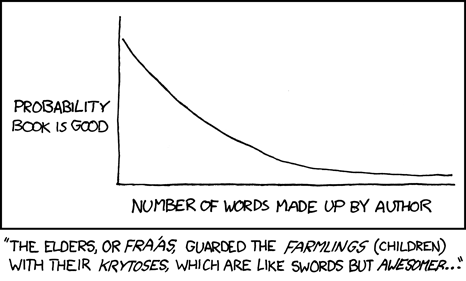The Chronicles of Narnia: "Morally Loathsome"
Posted: Fri Sep 02, 2011 5:13 am
As a variation on the grand tradition of posting reviews for Broadway musicals that one has not attended, here are some excerpts from Philip Pullman’s impromptu review of C. S. Lewis’ Narnia books. I haven’t read anything by C. S. Lewis, but I’ve read Pullman’s His Dark Materials, which I enjoyed immensely.
Pullman is one of the UK’s most outspoken atheists and the themes of His Dark Materials are particularly germane to this forum. A series of children’s books, His Dark Materials deals with a second war in Heaven in which angels, humans, and various imaginary creatures (which includes angels, I suppose) rebel against God. Their goal: to abolish the kingdom of Heaven and replace it with a Heavenly republic. Along the way, God is eventually killed, albeit by accident. And yes, these are children’s’ books.
But of course this is all beside the point, because the really interesting part concerns Pullman’s attitudes toward Narnia, which mirror some of what is said in this forum about Mormonism. This from a Dec. 2005 edition of The New Yorker…
Pullman is one of the UK’s most outspoken atheists and the themes of His Dark Materials are particularly germane to this forum. A series of children’s books, His Dark Materials deals with a second war in Heaven in which angels, humans, and various imaginary creatures (which includes angels, I suppose) rebel against God. Their goal: to abolish the kingdom of Heaven and replace it with a Heavenly republic. Along the way, God is eventually killed, albeit by accident. And yes, these are children’s’ books.
But of course this is all beside the point, because the really interesting part concerns Pullman’s attitudes toward Narnia, which mirror some of what is said in this forum about Mormonism. This from a Dec. 2005 edition of The New Yorker…
When it comes to “The Chronicles of Narnia,” by C. S. Lewis, Pullman’s antipathy is even more pronounced. Although he likes Lewis’s criticism and quotes it surprisingly often, he considers the fantasy series “morally loathsome.” In a 1998 essay for the Guardian, entitled “The Dark Side of Narnia,” he condemned “the misogyny, the racism, the sado-masochistic relish for violence that permeates the whole cycle.” He reviled Lewis for depicting the character Susan Pevensie’s sexual coming of age—suggested by her interest in “nylons and lipstick and invitations”—as grounds for exclusion from paradise. In Pullman’s view, the “Chronicles,” which end with the rest of the family’s ascension to a neo-Platonic version of Narnia after they die in a railway accident, teach that “death is better than life; boys are better than girls . . . and so on. There is no shortage of such nauseating drivel in Narnia, if you can face it.”
. . .
Sexual love, regarded with apprehension in Lewis’s fiction and largely ignored in Tolkien’s, saves the world in “His Dark Materials,” when Lyra’s (the main character) coming of age and falling in love mystically bring about the mending of a perilous cosmological rift. “The idea of keeping childhood alive forever and ever and regretting the passage into adulthood—whether it’s a gentle, rose-tinged regret or a passionate, full-blooded hatred, as it is in Lewis—is simply wrong,” Pullman told me. As a child, Lyra is able to read a complicated divination device, called an alethiometer, with an instinctual ease. As she grows up, she becomes self-conscious and loses that grace, but she’s told that she can regain the skill with years of practice, and eventually become even better at it. “That’s a truer picture of what it’s like to be a human being,” Pullman said. “And a more hopeful one. . . . We are bound to grow up.”
. . .
In person, Pullman isn’t quite as choleric as he sometimes comes across in his newspaper essays. When challenged, he listens carefully and considerately, and occasionally tempers his ire. “The ‘Narnia’ books are a real wrestle with real things,” he conceded. As much as he dislikes the answers Lewis arrives at, he said that he respects “the struggle that he’s undergoing as he searches for the answers. There’s hope for Lewis. Lewis could be redeemed.” Not Tolkien, however: the “Rings” series, he declared, is “just fancy spun candy. There’s no substance to it.”
